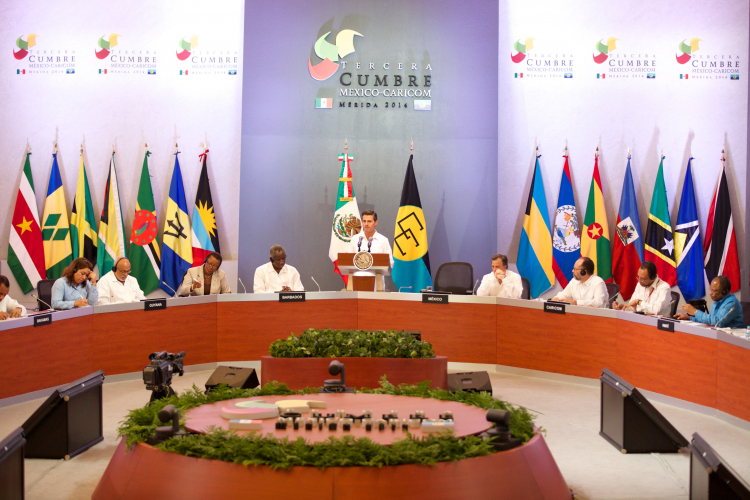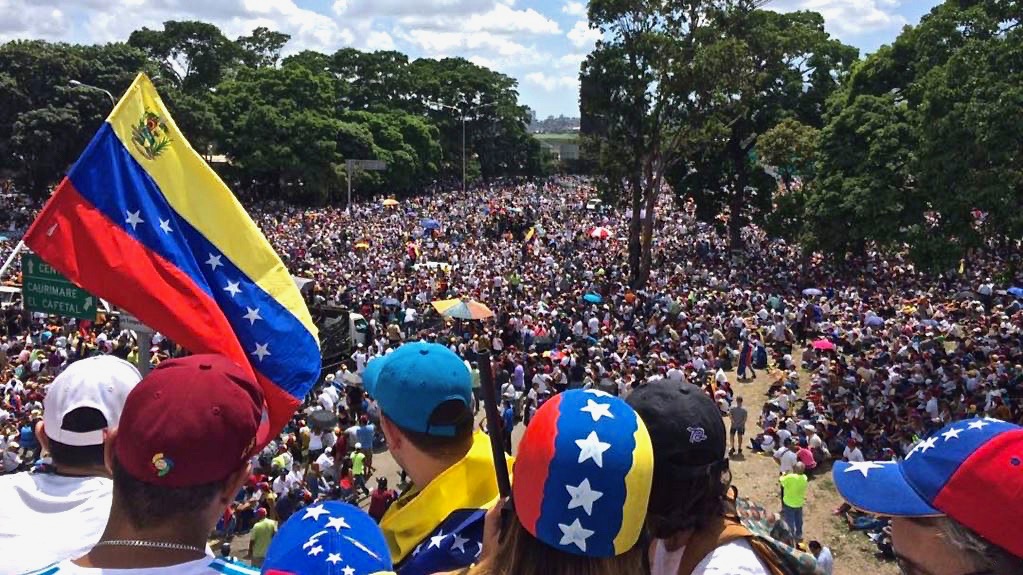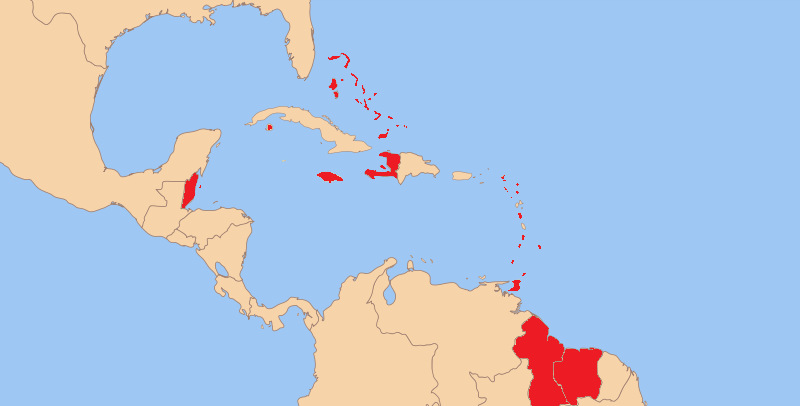A Caribbean Perspective on the Political Crisis in Venezuela

Migration is a huge part of human history, and changes in migration patterns have often been directly linked to political and economic crises. The Venezuelan crisis is no different. In the years since the crisis began, neighboring countries in South America and the Caribbean have seen an immense rise in migration in their respective countries. While there has been a focus on the way that it has impacted Columbia, Caribbean countries are also dealing with large amounts of people migrating and seeking asylum. With fragile economies and no prior experience in mass migration, these countries are working to figure out the best approach to dealing with the situation both politically and socially.
A recent meeting in Montevideo with Uruguay and Mexico, both of whom have taken a neutral position when it comes to recognizing Juan Guaido as president, aimed to find a new approach to the crisis in Venezuela. CARICOM, which is the Caribbean organization that consists of fifteen countries and dependencies, met numerous times to come up with a consensus on Guaido between all the islands. However, their decision to take a neutral position has highlighted the incredibly complex relationship between the Caribbean and Venezuela.
Understanding the effect of the crisis:
Islands in the Lesser Antilles, especially Trinidad and Tobago, have seen a massive influx of Venezuelans who are entering the country because of its proximity to Venezuela. Migrants have been continuously entering the countries to purchase basic goods, find work, or seek asylum. It is reported that the country has an estimated 40,000 Venezuelans living in the country since the crisis started. The influx of migrants has called attention to the country's lack of laws and proper regulations when it comes to helping refugees and asylum seekers.
The Twin Islands have also seen a rise in specific crimes due to the crisis. Within the last year, there have been multiple cases of fishermen being kidnaped and taken to Venezuela by pirates who demand high ransoms for their returns as well as multiple trafficking busts on drugs and women who are being brought to the islands to stay or as a stop before continuing further.
Trinidad and Tobago's government has been slow to implement proper regulations when it comes to migrants on the island however, the local government is currently reviewing a bill that would register Venezuelans so that they would have the ability to work for up to a year in the country.
Guyana, a country that shares a border with Venezuela, has similarly seen a rise in migrants in their country. So much so, that the country reportedly has nearly 3000 documented migrants. That number does not include the many undocumented migrants that the state is continually urging to come forward to be documented in order to receive assistance from the government. Immigrants are dispersed all over the country but recently migrated Venezuelans are specifically concentrated in the capital Georgetown or in the border towns. Some of them have even been living in makeshift shacks and because of this, the government officially announced their plans last year to build temporary settlements for Venezuelan refugees. However, Guyana, like other bordering countries of Venezuela, is struggling to provide the necessary aid to the number of migrants crossing the border.
Guyana’s bordering towns, particularly where the gold mines of the country reside, have also been dealing with crime as gangs continue to cross the border. This has forced the government to boost national security in those areas.
Citizens of the respective countries have very mixed reviews on the entire situation. In Guyana, some citizens think that Venezuelans are getting priority in certain jobs while others think it is their human right to help vulnerable migrants. Citizens in both countries seem to fear not the migrants that are seeking refuge but the amount of people coming over and the lack of policies in monitoring the people who are entering their country.
Despite a rise in crimes in both countries, majority of the Venezuelan immigrants are just seeking security and money in order to protect and provide for themselves and their families. Due to the continued rise of inflation in their country and the lack of opportunities for employment, leaving their country is one of the last options for living a semi-stable life. However, the lack of accurate numbers and information on the situation is creating a divide between citizens and these migrants.
Ties with Venezuela
The crisis has left citizens and government officials of islands in the Caribbean divided on the best way to handle the situation when it comes to both aid and national security. However, similarly to other Caribbean islands, the relationship between them and Venezuela is not just their proximity, but their economic ties.
Protest in Venezuela in 2017. Image Credit: Wikipedia
Similar to islands like Jamaica, where Venezuela currently has a 49 percent share in its national petroleum company, Trinidad and Tobago also has past and ongoing relationships with the country when it comes to oil. Currently, there is a deal between the countries that allows Trinidad and Tobago to buy gas from Venezuela to supply their petrochemical plants in the islands. However, the agreement has still one more contract to sign. In light of recent sanctions by the U.S. in Venezuela, it is up in the air on when that will be fulfilled.
Guyana, however, hasn’t had the smoothest relationship with Venezuela in recent months. Oil reserves found in an offshore block near Guyana’s Venezuela's shared border has raised tensions on the territory between the two countries. The Venezuelan Navy has even intervened on oil exploration efforts by oil companies in Guyana. These tensions on territory are not new to the two countries. However, they are being rehashed as Guyana continues to produce more and more oil since 2015.
CARICOM Meeting
Governments of the Caribbean have been extremely divided on the issue. Countries such as Haiti and the Bahamas have recognized Guaido as the interim president, however, the other members have been very hesitant in doing the same. After meeting on January 24th, the members of CARICOM decided to keep in accordance with one of the organizations main principles which is a non-interference and non-intervention approach to sovereign states. Many of the members voiced concern over any form of U.S. intervention in the region.
A Map Showing the Members of CARICOM. Photo Credit: Wikimedia CommonsThe Montevideo Mechanism
The meeting with Mexico, Uruguay and CARICOM was held in Montevideo on February 7, 2019. Their meeting echoed similar sentiments of CARICOM and their non-intervention approach and the discussions resulted in a four-phase proposal to handle the complex political situation in the country. The deal seems to aim for as of a peaceful resolution as possible, one that avoids any upsurge in violence.
Whether the deal can actually be implemented or not relies heavily on the decisions and actions of Maduro and Guaido within the next few weeks. While other countries around the world make their support for the respective political leaders known, the Caribbean's decision to remain on neutral ground further highlights their complicated relationship with Venezuela both economically and socially.










